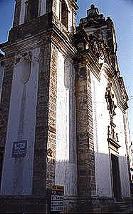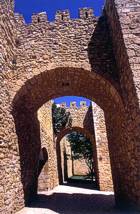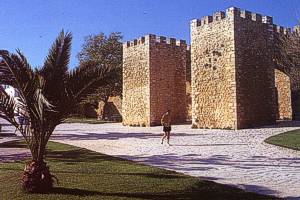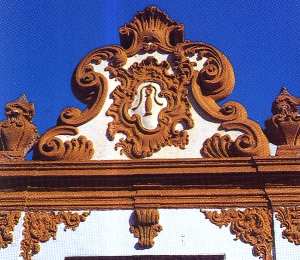|
The city's old name - Lacobriga - indicates that its origins are
Celtic and date back to approximately 2,000 years B.C. For a long
period it was a port visited by Phoenicians, during the Roman occupation
the city prospered and grew. In the 10th century the Arabs built a
double ring of ramparts, but this was not enough to stop the Christians
conquering the city in 1249. The I 5th century was a golden age for
Lagos. For 40 years, thanks to its location across the sea from Africa,
the city became a port of departure and arrival for the vessels that
set off year after year on voyages of discovery along the coast of
that continent. A centre for trade in iron, gold, silver arid other
exotic merchandise brought back from Africa, Lagos attracted merchants
and bankers, Portuguese and foreign alike, and poured its wealth into
new churches and sumptuous houses. New city walls, built in the 16th
century; marked the urban expansion of the city, which from 1573 was
an episcopal see and residence of the governors of the Algarve.The
earthquake of 1755 and the tidal wave that followed in its wake destroyed
much of the city, which only began to recover some of its former prosperity
in the mid 19th century. Today Lagos is a bustling city, proud of
its past.
|
|
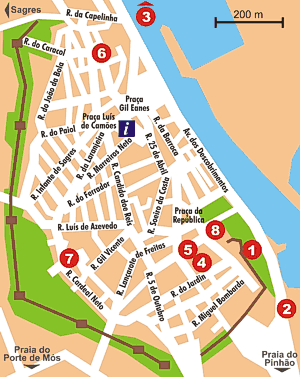
|

